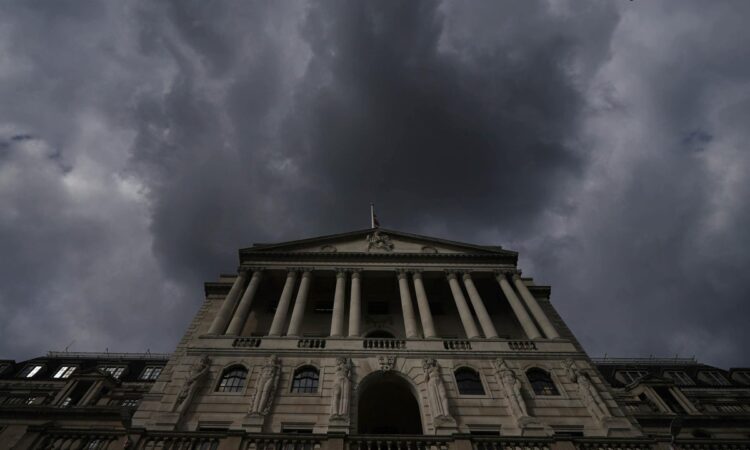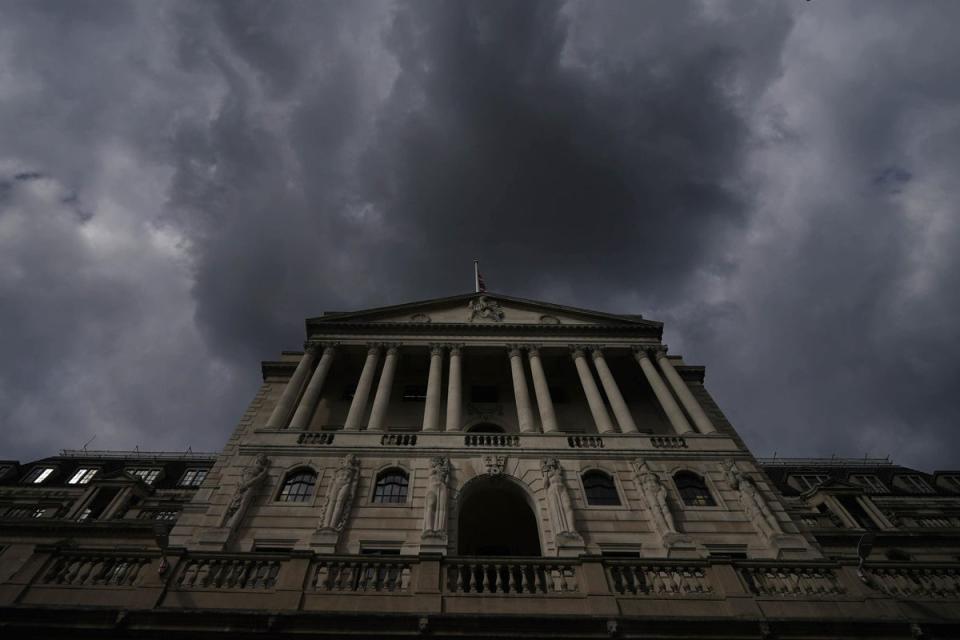

City traders’ interest rate expectations jumped again today, as fears grew that Bank of England attempts to clamp down on inflation are failing.
Short-dated gilt yields continued their relentless march upwards, with the two-year yield hitting yet another 15-year high at 4.97% this morning. That’s almost a quarter of a percentage point above the levels reached during the mini-Budget, as investors think Bank rates will stay high for even longer.
It’s likely to lead to higher mortgage rates, after data released today showed the average two-year fixed-rate deal crossed the 6% threshold on Friday.
The picture could get significantly better or worse this week with two major economic events to come, starting on Wednesday when the ONS publishes inflation statistics for May.
Economists expect the rate of price rises to tick down slightly, to 8.5%, still miles ahead of the Bank of England’s 2% target and barely any lower than a month ago.
More closely watched will be the core inflation reading, which strips out food and energy prices. That is expected to remain at 6.8%, the highest rate since 1992.
Higher inflation figures would mean further interest rate hikes are likely, prompting traders to sell gilts and send yields even further upwards.
With mortgage lenders using gilt markets to price their products, higher yields will likely mean even more mortgage pain.
Graham Cox, founder at SelfEmployedMortgageHub.com, said: “Let’s just pray the inflation figures on Wednesday are better than expected. If they are, rates may fall as quickly as they’ve risen over the past couple of weeks.
“If they’re worse, hold onto your hats.”
The Bank of England’s Monetary Policy Committee will then reveal its latest decision on interest rates on Thursday. With a 13th consecutive rate rise seen as a near-certainty, the question will be whether the Bank raises rates by a quarter of a percentage point to 4.75% as expected, or takes a more aggressive stance by hiking rates all the way to 5%.
The City will also scrutinise the comments accompanying the expected hike, looking for signs of what Threadneedle Street expects as the year goes on.
Justin Moy, managing director at EHF Mortgages, said: “We all hang on the words and actions of the Government and the Bank of England this week.”
The Bank is expected to keep raising rates as the year goes on, with markets pricing in a 50% chance that rates peak at 6%. But many economists are more optimistic believing recent hikes are only just starting to have an effect on the economy, as the prevalence of fixed-rate mortgages has delayed their impact.
James Smith, developed markets economist at ING, sees rates peaking at 5% instead. He said: “We have strong doubts that the BoE will take rate hikes as far as markets expect.”





